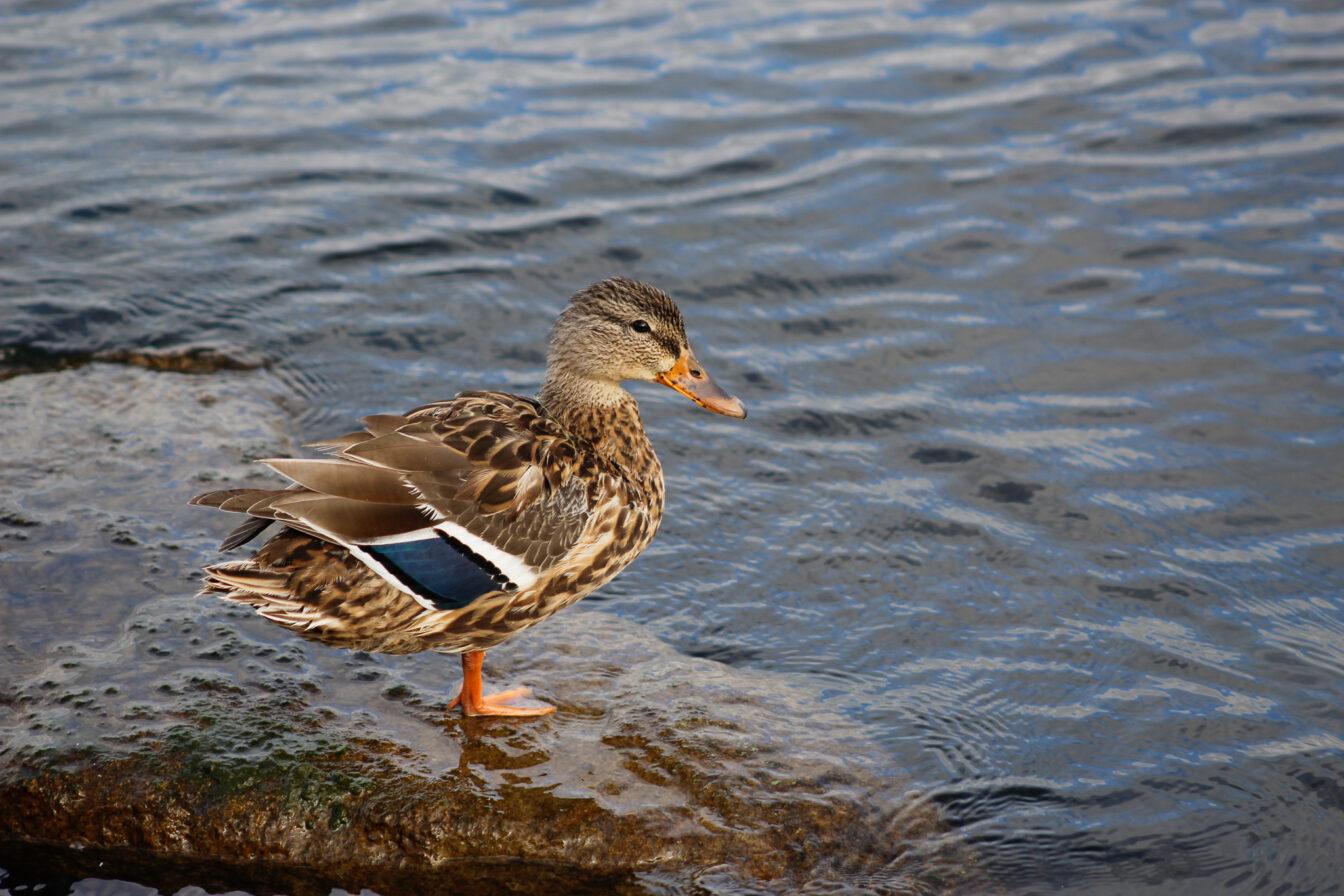Recently thawed Lake Mendota has become home to migrating swans, ducks and geese. Their yearly return marks the beginning of the nesting season and provides cultivation benefits to the lake ecosystem, University of Wisconsin forest wildlife ecology professor Anna Pidgeon said.
The urban environment of Madison impacts the ecosystem’s health but also contributes to the birds’ survival by providing food and nesting resources.
As May approaches, the wind direction and temperature rise bring along a flux of migrant species, Pidgeon said. The breeding ground around Mendota is a food resource hotspot for the bird species migrating north, including ducks, geese, sparrows, cranes and swans.
One of the most commonly seen species in Madison is the mallard duck, Pidgeon said. Mallards are one of the most friendly bird species to humans and have the highest population density of any waterfowl species around Lake Mendota.
Urban environments have developed into both geese and mallards’ habitats. Both of these species have adapted very well to the environment, wildlife ecology professor emeritus Stanley Temple said. Humans are providing habitat and food sources that they can use as resources.
While ideal nesting habitats should not be near cities, food resources attract the birds to the urban environment, Pidgeon said. Students may see the ducks hanging around the Terrace, where the ducks know they can get food. If they live long enough, the ducks return to the area.
“They will nest in urban areas again, and maybe even the same flower pot, if it’s possible,” Pidgeon said. “They have a very, very tight connection to places where they were successful.”
This causes the surrounding area around Lake Mendota to be a place of mallard congregation, Pidgeon said.
There are many places around Lake Mendota where students can observe how waterfowl have adapted to the urban lake environment and to bird watch — the Lakeshore Path, Picnic Point and University Bay are all observation areas, Temple said.
Their success in nesting habits plays a big role in their abundance around the area. Females tend to be in the midst of a fertile period during the spring — making, laying and incubating their eggs. Males are focused on accompanying the females for reproduction, Pidgeon said.
Recent study finds how principal investigators influence lab culture
Some of the most impressive birds at Lake Mendota are swans. The trumpeter swan population was wiped out in Wisconsin years ago. Recently, they have made a dramatic recovery due to a reintroduction program, Temple said.
According to Temple, tundra swans also stop at the lake while making their way to the Arctic.
Tundra swans play a unique role in the Lake Mendota ecosystem. When they are passing through, they dig up the bottom of the lake to look for tubers or underground plant stems, Pidgeon said.
“They are uprooting the plants and helping them to move and reproduce,” Pidgeon said.
This participation in the local ecosystem is a common trend for many of the migrant bird species visiting Lake Mendota. According to Temple, the waterfowl not only help spread food sources, but also transport nutrients around the lakeshore area.
Canada geese, for example, are often seen in upland areas grazing on fields, golf courses and parks. Their excretion transports nutrients back and forth between the lake and the land, Temple said.
Science Magazine editor-in-chief on how science ‘lost’ America, how to gain it back
The presence of geese does have its drawbacks, however. The land around Madison’s lakes is very attractive to them, so they tend to populate in these areas and cause issues for planes, especially in areas around the Dane County Airport, Temple said.
“Canada geese are probably the waterfowl species that has become the public enemy number one,” Temple said.
Also associated with the congregation of migrating species is the risk of disease spreading. During the spring, there is a great deal of concern about the highly pathogenic avian influenza. As waterfowl migrate around, this virus can transfer to the landscape as well as to other species, Temple said.
Most human interaction with the migrating birds is not harmful, but the effects of pollution and runoff are considerable. Lake pollution, habitat loss and climate change are causing a decline in the local insect population. Waterfowl need the insects as a food source, Pidgeon said.
Stalagmites in Wisconsin’s Cave of Mounds hold clues to previous climate changes in state
According to Temple, the ecology of Lake Mendota is also changing rapidly as a result of what is entering the lake from the surrounding landscape.
“Whether it’s the urban landscape in Madison or the agricultural landscape within the watershed, the pollution and nutrients that are coming into the lake are definite,” Temple said.
Humans have an impact on the environment, Temple said. A majority of climate change and biodiversity loss can be correlated to human activity, and it is hard to improve environments without being conscious about interacting with nature.
In order to change for the better, people have to care, Temple said.


















